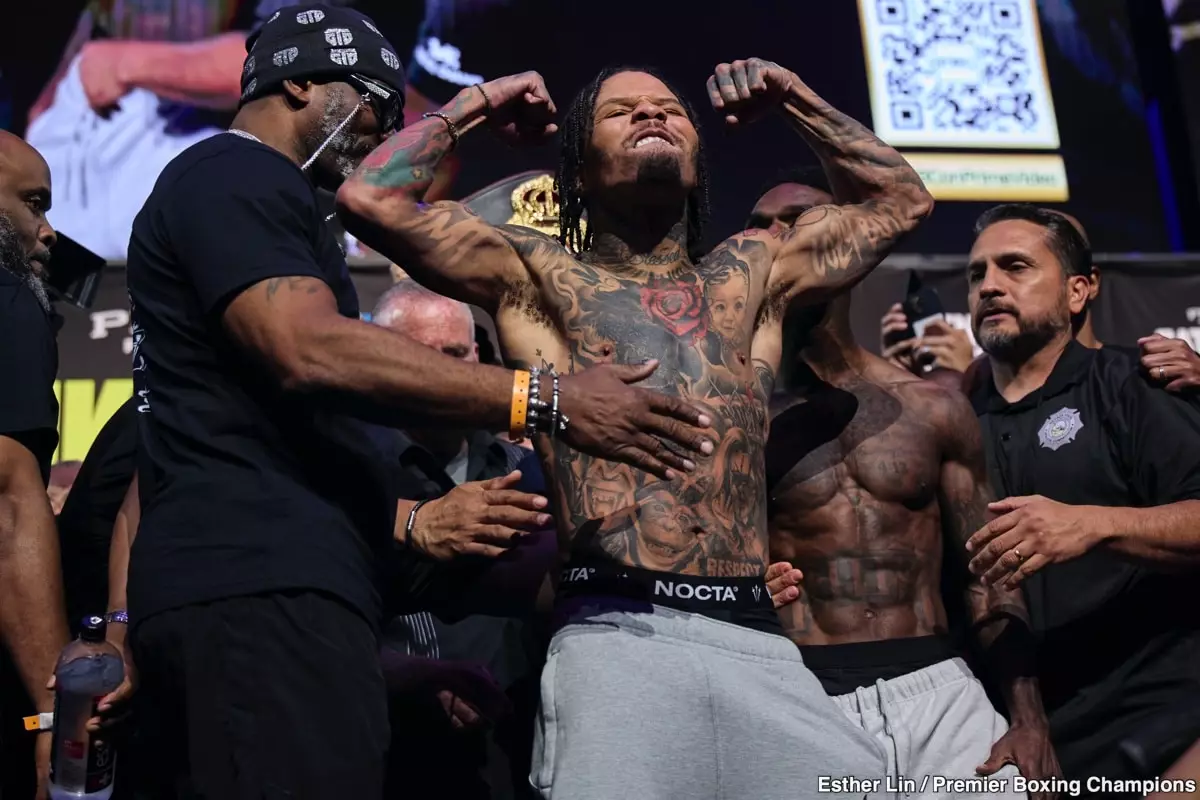Gervonta “Tank” Davis has become a household name in boxing, boasting an impressive record of 30 wins with only 28 knockouts. However, renowned commentator Tim Bradley has voiced serious criticisms regarding the pattern of Davis’s career path, arguing that his seemingly glamorous record is misleading when scrutinized closely. By consistently pitting Davis against lesser opponents and avoiding significant challenges, there is concern that his promotional team is stifling his growth while fostering an illusion of greatness.
The Illusion of Dominance Through Selective Matchmaking
Bradley describes Davis’s career trajectory as that of a “30-year-old prospect” instead of a seasoned champion. This remark speaks volumes about how much the promotional company, Premier Boxing Champions (PBC), has shielded Davis from the fiercest competition. In this context, it is necessary to examine the implications of such matchmaking practices on a fighter’s development. Quality competition is vital for honing skills, gaining experience, and preparing for championship fights. When a fighter continuously faces opponents deemed non-threatening, it creates a façade of dominance.
Significantly, Bradley pointed out missed opportunities for Davis to engage in meaningful matchups, such as a potential fight against Vasily Lomachenko when he was still in his prime. By waiting until Lomachenko was 37, fans could interpret PBC’s strategy as avoiding high-risk conflicts that expose Davis’s actual caliber. Thus, the question arises: what is the incentive for such maneuvering? Is it to build a marketable brand at the expense of genuine competition?
A troubling aspect of Davis’s career is the disparity between fan perception and the reality of his matchups. Many of Davis’s fans naively see their champion as an elite fighter traversing the ranks against the toughest competition. However, Tim Bradley argues that these supporters might not closely track the sport to understand the selection of Davis’s opponents. This disconnect highlights an alarming trend in boxing: the way promotional entities manipulate narratives, misleading fans while wearing the guise of a successful boxing career.
Bradley suggests that followers should question the legitimacy of Davis’s achievements. He emphasizes the constructed narrative, using phrases like “protective custody” and “matchmaking can cover up imperfections,” to underline his point. The controversy stems from the belief that Davis is being signed to easy fights to maintain an unblemished record rather than genuinely seeking to engage with the best fighters in his division.
Adding to the discussion is the way Davis has structured contracts with weight stipulations to gain an advantage. When he fought Ryan Garcia, for instance, there were explicit agreements regarding weight classes, ensuring that Davis entered the ring without risking competitive vulnerability. This tactic not only dilutes the level of competition but also raises questions about the kind of fighter he is. If a champion continues to engage in these practices, are they genuinely champion-like or merely relying on strategic advantages to maintain their status?
Bradley emphasizes that genuine champions fight the best at their natural weight without such stipulations. This practice shows a reliance on external factors to secure wins rather than a robust skill set and preparedness for competition. The legacy of any athlete depends on their ability to rise consistently to challenges, and failing to do so diminishes their place in the annals of history.
As boxing enthusiasts look towards the future and the ongoing evolution of the sport, there is an urgent need for fighters like Davis to engage in authentic competition with elite opponents. Tim Bradley has called for Davis to face Shakur Stevenson, a rising star who represents a true test of his abilities. The longer Davis avoids such matchups, the more the claims of being a champion will be diminished by critics.
Importantly, this discussion extends beyond just one fighter. It poses fundamental questions about how fighters and their promotional teams approach competitiveness in boxing. Before fans can celebrate a champion, they deserve to see battles that truly represent the pinnacle of athletic prowess and courage within the ring.
Ultimately, Gervonta Davis’s career raises significant concerns regarding the implications of manipulated matchmaking and the consequences it has on both the fighter’s legacy and the sport’s integrity. As fans continue to question the authenticity of his title defenses, a pressing call for richer, riskier competition has never been more apparent. Only with genuine confrontations can the narrative of greatness surrounding Davis finally be validated.

